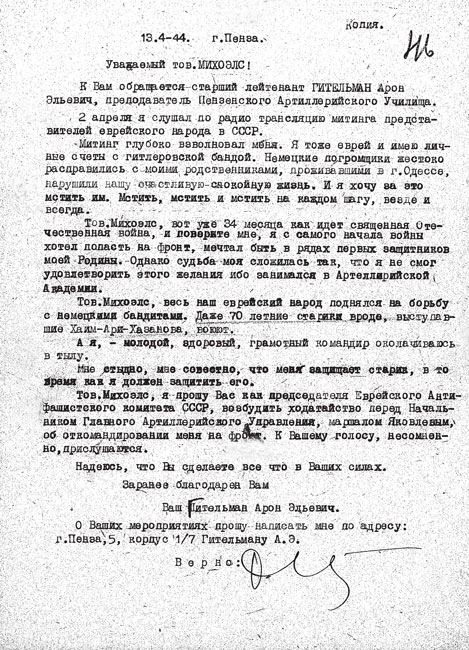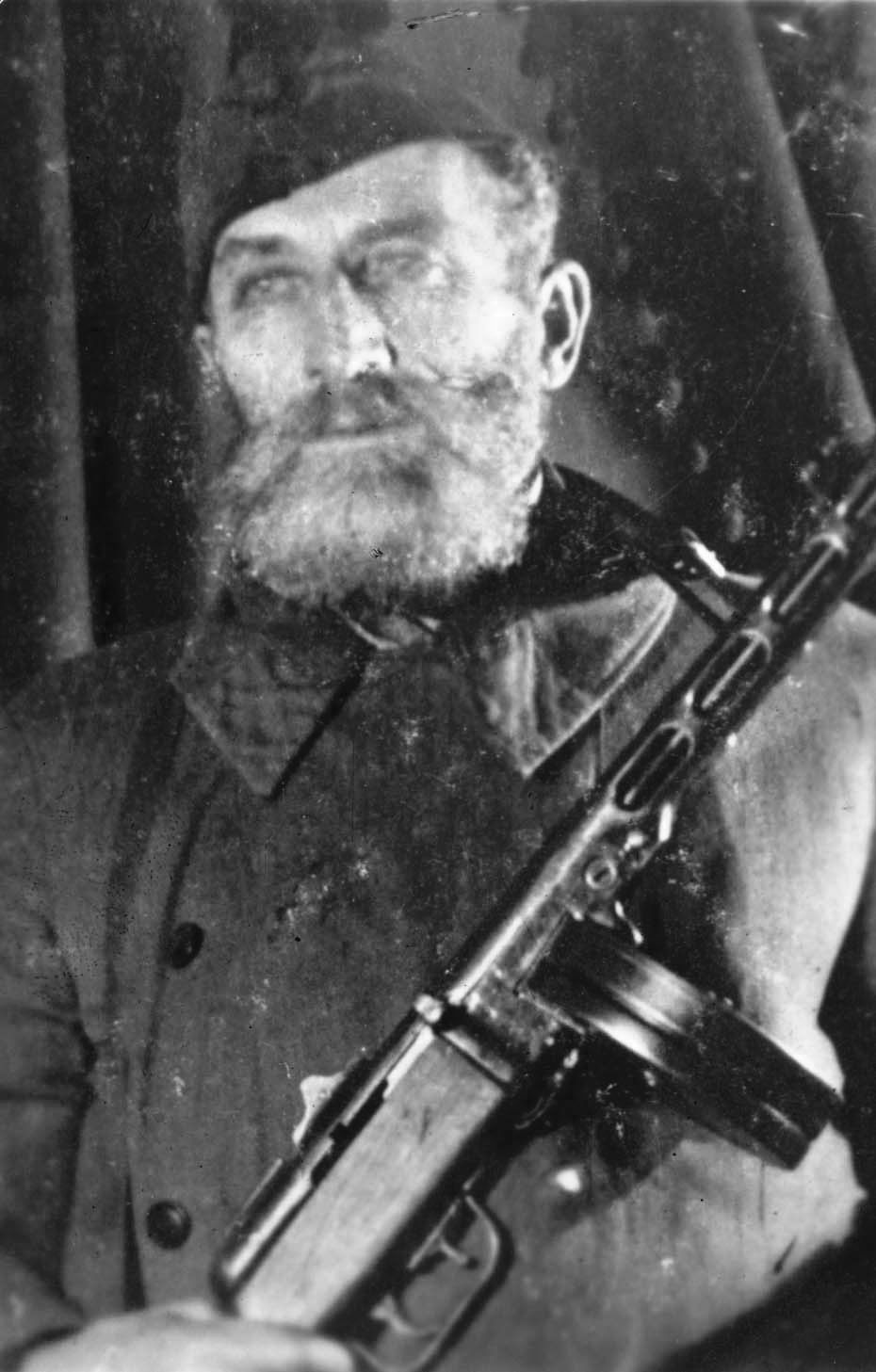Aron Gitelman was born in 1919 and lived in Odessa. In July and August 1941 he took part in the defense of that city. Afterwards he studied in an artillery academy and then taught at the Penza artillery school. On April 2, 1944 he heard on the radio the broadcast of the 3rd anti-fascist meeting of representatives of the Jewish people that was taking place in Moscow. Among the speakers at that meeting were Yiddish writers, Shlomo Mikhoels, chairman of the Jewish Anti-fascist Committee (JAC) and director of the Moscow State Jewish Theater, Jewish officers who had distinguished themselves in combat and had been nominated for the honor of Hero of the Soviet Union Rafail Milner and Leonid Buber (see the articles about them in this project), and many others. Among the speakers also was Chaim-Ore Khazanov, an old Jew from the small Belorussian town of Klimovichi, who was miraculously escaped the mass shooting there and then joined a partisan unit. In 1944 this 70-year old religious Jew, who had many relatives living in the United States, was brought to Moscow, where he spoke at the meeting of Jewish representatives, calling on his fellow Jews to continue the fight against the Nazis.
This meeting led the 25-year-old senior lieutenant Aron Gitleman to turn to Shlomo Mikhoels in his capacity as chairman of the JAC and request his aid in being accepted for active service. In his letter Gitelman noted that his parents had been killed in Odessa and, thus, he had person reasons for wanting to fight the Nazis.
Apparently intervention on the part of the JAC had an effect since on July 1, 1944 Gitelman was in the army on the Karelian Front as head of supplies of an artillery regiment. From August 1 to August 7 the whole regiment, including its commanders, was surrounded. Gitelman was in charge of a staff battery whose task it was to repulse a Finnish attack on the staff headquarters. The artillery cover that he organized allowed the headquarters of the regiment to break out of encirclement. Gitelman was awarded the Order of the Red Banner for the valor he demonstrated.
Letter of Aron Gitelman to Shlomo Mikhoels
From the letter of Senior Lieutenant Aron Gitelman to Shlomo Mikhoels of April 13, 1943:
"… On April 2, I heard a radio broadcast of the rally of the representatives of the Jewish people in the USSR.
The rally deeply touched me. I, too, am a Jew and I have a personal score to settle with Hitler's gang. The German thugs cruelly killed my relatives living in Odessa and destroyed our happy, quiet life. And I want to take revenge for it. Revenge, revenge and more revenge, at every step, everywhere and always.
Comrade Mikhoels, the sacred Patriotic War has been going on for 34 months, and believe me, from the very beginning of the war I have wanted to go to the front. I dreamt of being in the ranks of the first defenders of my Homeland. However, as fate would have it, I could not fulfill this wish for I was working at the Artillery School.
Comrade Mikhoels, our entire Jewish people has risen up to join the battle against the German bandits. Even 70-year-old men, like Haim-Ari- [sic] Khazanov, are fighting.
But I, — a young, healthy, literate commander, just hang around in the rear.
I am embarrassed and ashamed that an old man is defending me while I should be the one to defend him.
Comrade Mikhoels, I ask you, as the chairman of the Jewish Anti-Fascist Committee of the USSR, to petition Marshal Yakovlev, Head of the Central Artillery Administration to send me to the front. They will undoubtedly heed your voice.…"
GARF 8114-1-907, copy YVA JM/26303, cited from the English translation of the letter: Shimon Redlich, War, Holocaust, and Stalinism: A Documented Study of the Jewish Anti-Fascist Committee in the USSR, Luxembourg, 1995, p. 221.








